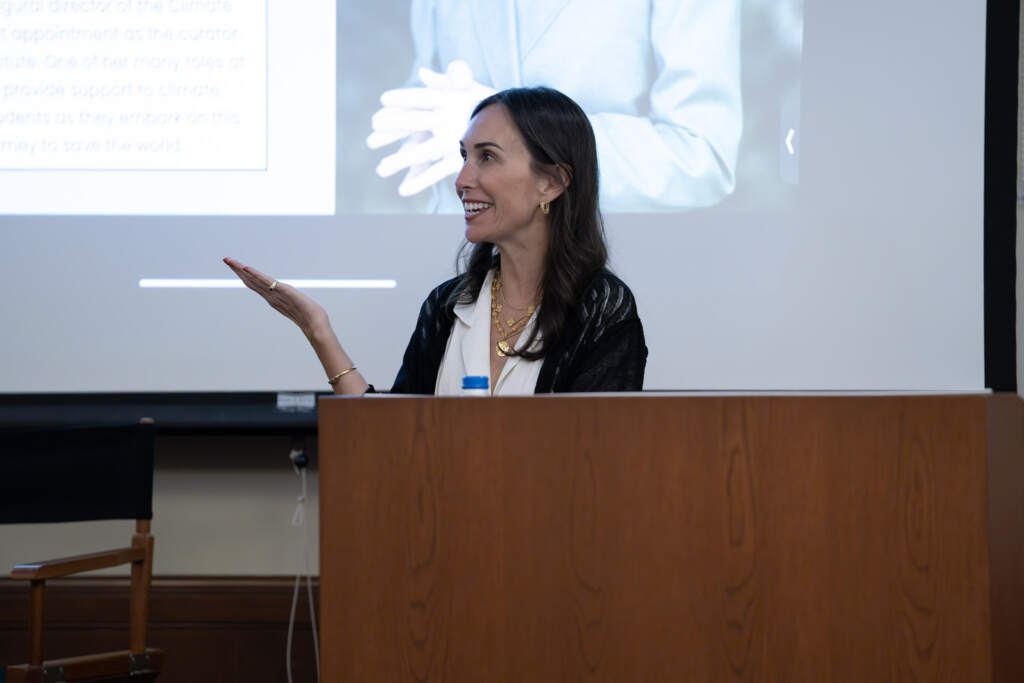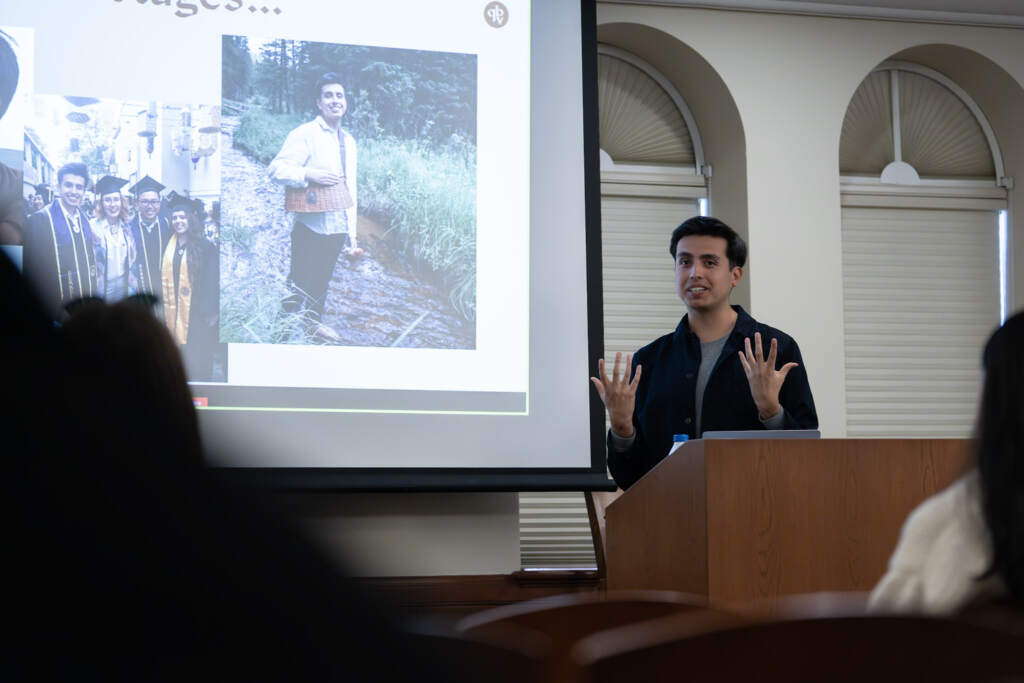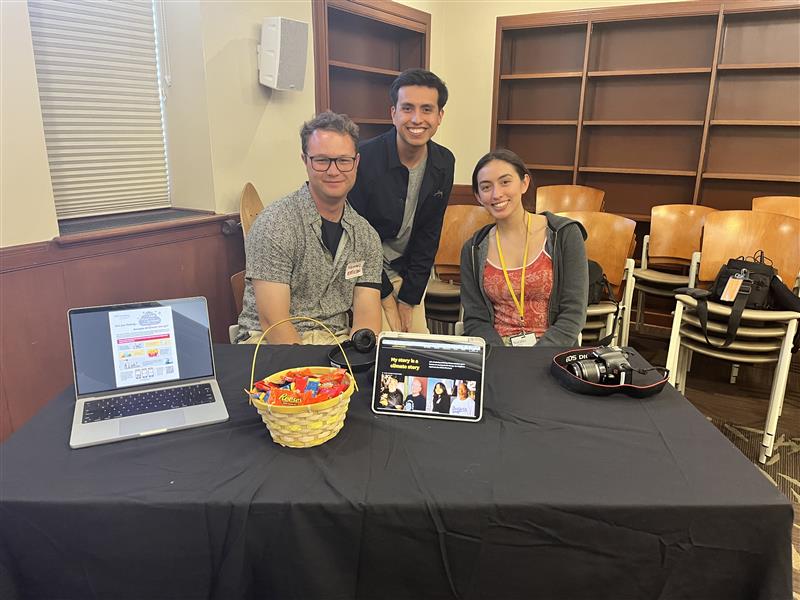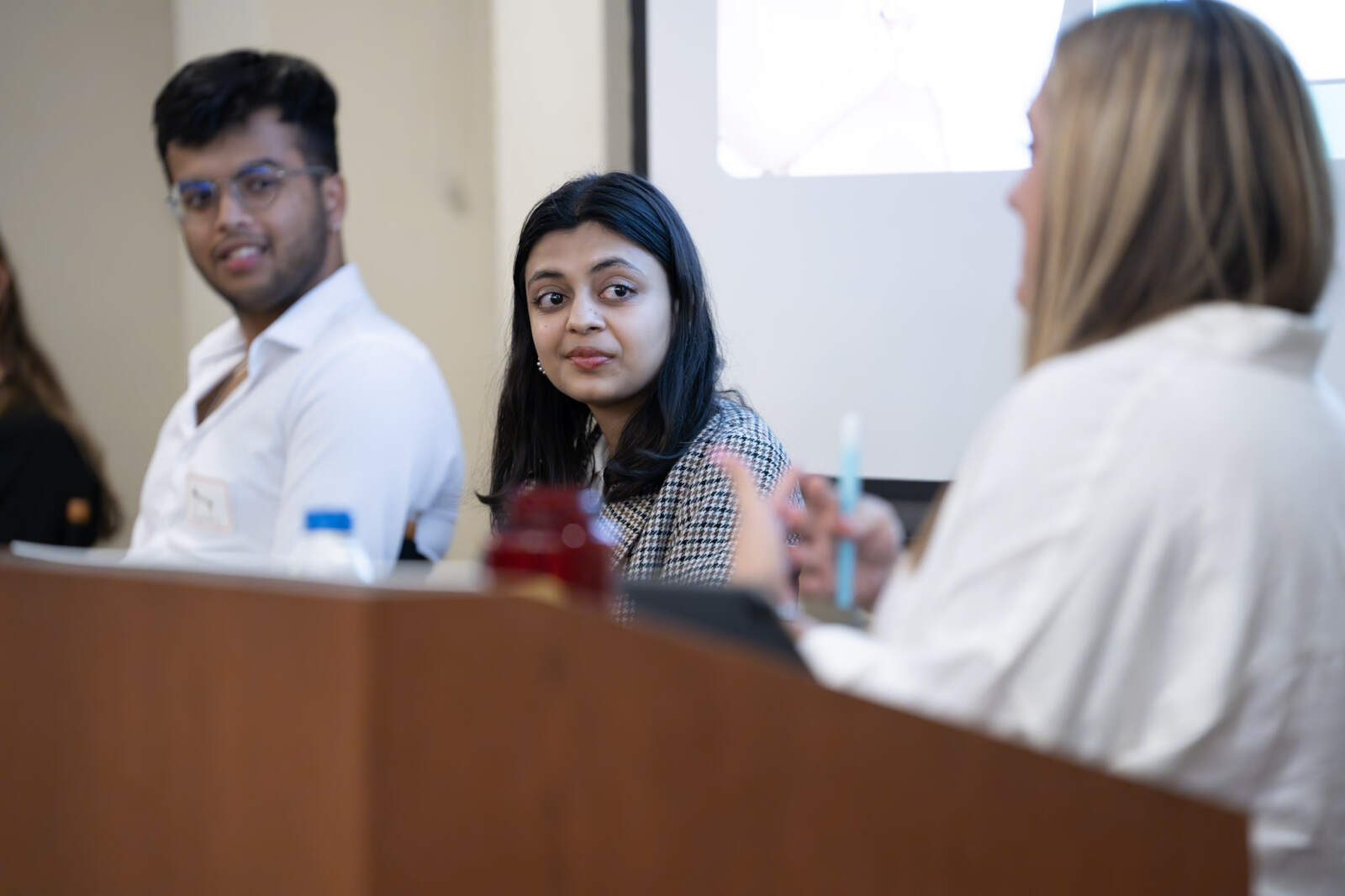I remember having my first climate-related existential crisis at the age of five.
My dad had just bought me a huge stack of encyclopedias –– taller than I was at the time –– and I voraciously made my way through all of them, delighting at the illustrations of snakes and butterflies and ants… until I got to one about the universe and the planet.
It said that life on Earth will end someday. This is because the sun will swallow up Earth in a few billion years, but even before that, global warming will cause extreme heat, sea level rise and climate catastrophe all over the globe, killing the beautiful biodiversity I had just read about.
My first thought: “What will happen to my parents?” My second: “What about all the beautiful things that I see every day when I wake up in the morning?”
Since then, I have taken all the opportunities I could to beat my climate distress. I went to school to study environmental science and geology and then ended up becoming a climate journalist and communicator, so I could tell climate stories from around the world.
Like all of you, I don’t want our civilization to end. I don’t want to wake up in the morning and not hear birds chirp outside my window or not see the leaves of trees rustle as the breeze passes through.
But I will also be one of the first people to admit that it is quite difficult to stay motivated and optimistic when every single day, you hear about yet another coral bleaching event, or a natural wonderland going silent, or people making reproductive choices out of despair for the future. It makes the work I do feel futile. Like others, sometimes I, too, lack the motivation to get out of bed and do what I do, because “what is the point?”
But the point is, it is not just you or me. All climate distressed individuals around the world together form a community that is concerned, anxious, grieving. While it is pretty easy to feel distressed when you think of yourself as fighting an arduous battle against massive systemic forces, we are not alone. Together, we can channel our concern into action.
The climate crisis can make our current times feel quite challenging, especially if you are a young person trying to deal with all the other pressures in your life: school, work, interpersonal relationships. For those who work in the climate space, whether through activism and advocacy work, doing research, or telling stories, it can be even harder to escape the feelings of doom and gloom.
But over time, I have learned to find hope within my communities. When I talk to other people who are fighting the climate crisis in different ways or are just as concerned about the planet as I am, all my worries start to feel a little bit smaller.
Last week, the USC Wrigley Institute organized the first of (what I hope will be) many events about climate distress, along with the Environmental Student Assembly and the USC Annenberg Center for Climate Journalism and Communication.

Introduction given by CCJC’s director Allison Agsten. (Photo by Nick Neumann/USC Wrigley Institute for Environment and Sustainability)
We kicked off with a very personal introduction by CCJC Director Allison Agsten, who talked about the importance of addressing mental health in the climate space. She then introduced environmental educator Isaias Hernandez, also known by his moniker Queer Brown Vegan, who gave a beautiful keynote address about our ecological relationship to the planet.
One of the things he talked about was his focus on building ecological wealth for the planet instead of generational wealth for our own families. “It can mean really different things for a lot of people,” he said. “For some, it’s an act of foraging or active gardening, for others, writing, poetry, filmmaking.”

Keynote speaker Isaias Hernandez, also known as Queer Brown Vegan. (Photo by Nick Neumann/USC Wrigley Institute for Environment and Sustainability)
Activists Lauren Tamayo and Tehya Jennett collected some of this ecological wealth within their documentary titled “Gen Z Mental Health: Climate Stories” that they produced with the Climate Mental Health Network.
We also saw a diversity of ecological wealth reflected in the panel discussion that followed Isaias’s talk.
Some panelists talked about their work in looking at how widespread climate distress was across college campuses. Abhay Manchala, a USC student who does research with USC professor Shannon Gibson on environmental policies and justice, shared findings from his study that showed how a huge number of USC students experience climate distress.
Bekah Estrada, who was the first eco-chaplain at USC and is now the Southern California director for California Interfaith Power and Light, shared her strategies of helping people through their eco-anxiety and eco-grief through active listening and mindfulness.
Some of the panelists shared stories about their personal journeys. JJ Flores, a junior at USC, shared their story about becoming an environmental advocate as a teenager amidst all the other pressures of school and understanding their own identity. Maksim Batuyev, environmental activist and musician, spoke about the importance of creating art and music as an outlet for climate emotions.
Across all these conversations, there was one clear thread: coming together as a community to cope with the climate crisis and inspire hope and action to create a better future.
If you are interested in more community-related Earth month events, check out the upcoming conversation at USC titled “How to Have Conversations Across Difference: Earth Month Edition,” followed by a screening of climate change documentary “True False, Hot Cold” by director and producer Ben Stillerman.

Students Michael Kittilson (left) and Natalie Lopez (Right) with keynote speaker Isaias Hernandez (center). (Photo by Shreya Agrawal)
If you are feeling suicidal or are worried you might harm yourself, please immediately call 911 or the mental health crisis line at 988.
For more information, please take a look at our Climate Distress Resource Document which contains links to several resources such as books and people you can reach out to if you need help.
Rhysea Agrawal is a multimedia journalist and the Center for Climate Journalism and Communication’s Engagement Coordinator.
